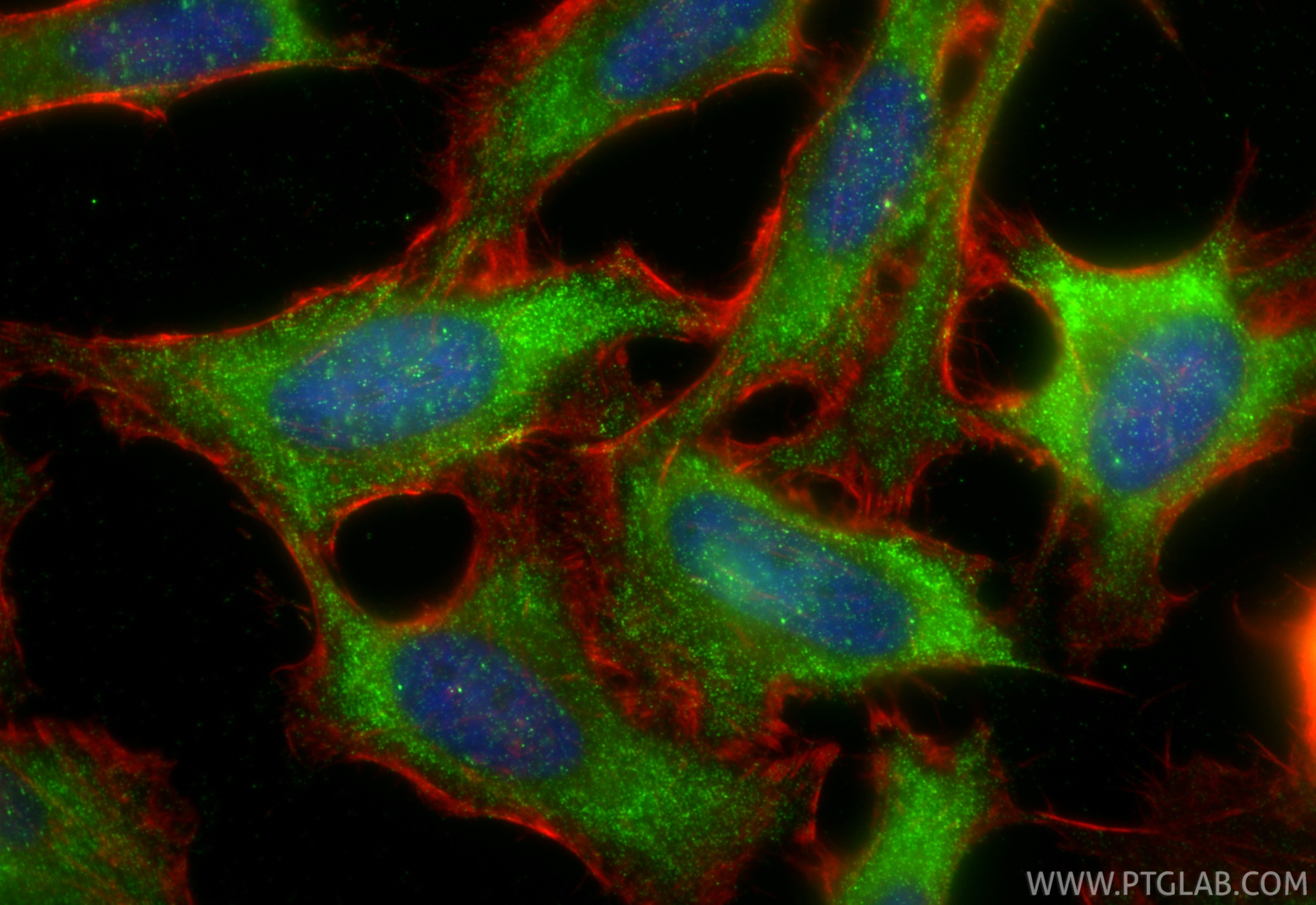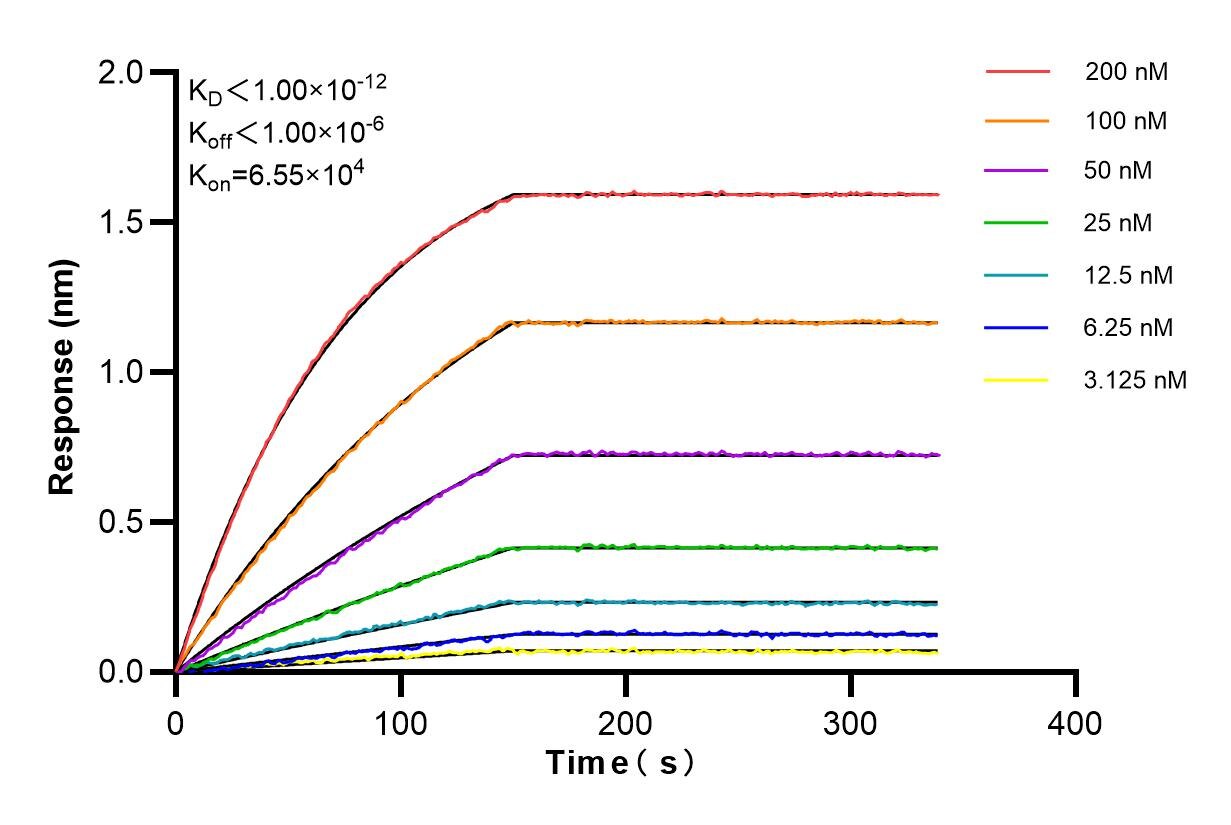FSTL1 Rekombinanter Antikörper
FSTL1 Rekombinant Antikörper für IF/ICC, ELISA
Wirt / Isotyp
Kaninchen / IgG
Getestete Reaktivität
human
Anwendung
IF/ICC, ELISA
Konjugation
Unkonjugiert
CloneNo.
241900D8
Kat-Nr. : 84672-2-RR
Synonyme
Geprüfte Anwendungen
| Erfolgreiche Detektion in IF/ICC | HeLa-Zellen |
Empfohlene Verdünnung
| Anwendung | Verdünnung |
|---|---|
| Immunfluoreszenz (IF)/ICC | IF/ICC : 1:250-1:1000 |
| It is recommended that this reagent should be titrated in each testing system to obtain optimal results. | |
| Sample-dependent, check data in validation data gallery | |
Produktinformation
84672-2-RR bindet in IF/ICC, ELISA FSTL1 und zeigt Reaktivität mit human
| Getestete Reaktivität | human |
| Wirt / Isotyp | Kaninchen / IgG |
| Klonalität | Rekombinant |
| Typ | Antikörper |
| Immunogen | FSTL1 fusion protein Ag33795 |
| Vollständiger Name | follistatin-like 1 |
| Berechnetes Molekulargewicht | 308 aa, 35 kDa |
| GenBank-Zugangsnummer | BC000055 |
| Gene symbol | FSTL1 |
| Gene ID (NCBI) | 11167 |
| Konjugation | Unkonjugiert |
| Form | Liquid |
| Reinigungsmethode | Protein-A-Reinigung |
| Lagerungspuffer | PBS with 0.02% sodium azide and 50% glycerol |
| Lagerungsbedingungen | Bei -20°C lagern. Nach dem Versand ein Jahr lang stabil Aliquotieren ist bei -20oC Lagerung nicht notwendig. 20ul Größen enthalten 0,1% BSA. |
Hintergrundinformationen
Follistatin-like protein 1 (FSTL1) is a secreted glycoprotein predominantly produced by mesenchymal cells. It is highly expressed during tissue fibrosis and plays a significant role in various pathological conditions, including inflammation, fibrosis, and immune regulation. It functions as a matricellular protein, interacting with extracellular matrix components and modulating cell-matrix interactions. FSTL1 is involved in multiple biological processes, such as cell proliferation, apoptosis, metabolism, differentiation, and immune response.
Protokolle
| PRODUKTSPEZIFISCHE PROTOKOLLE | |
|---|---|
| IF protocol for FSTL1 antibody 84672-2-RR | Protokoll herunterladen |
| STANDARD-PROTOKOLLE | |
|---|---|
| Klicken Sie hier, um unsere Standardprotokolle anzuzeigen |




